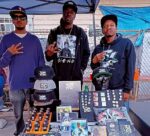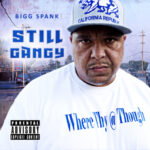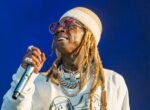In the ever-evolving landscape of hip hop, artists constantly push boundaries in their pursuit of lyrical prowess, creative expression, and, at times, controversy. Recently, Drake sparked significant debate within the hip hop community by utilizing AI-generated vocals imitating the legendary Tupac Shakur in a diss track titled “Taylor Made Freestyle”. The song is clearly aimed at his former ally, Kendrick Lamar. This move raises profound questions about the ethical and artistic implications of using deceased rappers’ voices to convey messages, particularly in the context of diss tracks.
On one hand, “Taylor Made Freestyle” supporters argue that incorporating the voices of deceased rappers adds a layer of authenticity and reverence to the music. Tupac, in particular, remains an iconic figure whose influence reverberates through generations of hip hop artists. By incorporating his voice, artists pay homage to his legacy and draw upon his aura to enhance the impact of their message. Furthermore, from a creative standpoint, AI technology offers new possibilities for artistic expression, allowing artists to collaborate across time and space in ways previously unimaginable.
Moreover, utilizing AI-generated vocals can serve as a form of artistic experimentation, blurring the lines between past and present, human and machine. It opens avenues for exploration in music production and challenges traditional notions of authorship and authenticity in hip hop. In this light, Drake’s use of AI-generated Tupac vocals can be viewed as a bold artistic statement, pushing the boundaries of the genre and sparking thought-provoking discussions within the hip hop community. Becoming a free-for-all, artists like Chris Brown and Rick Ross have also joined in, releasing diss songs aimed at at Drake and others.
However, the practice of using deceased rappers’ vocals in diss tracks also raises significant ethical concerns. Hip hop has always been deeply rooted in authenticity, storytelling, and respect for the culture. By manipulating the voices of deceased artists for personal gain or to settle scores, artists risk undermining the integrity of the genre and disrespecting the legacies of those who came before them. Tupac, in particular, was known for his authenticity and sincerity in his music, and using his voice in a diss track aimed at another artist could be seen as a violation of his artistic integrity.
Furthermore, the use of AI-generated vocals blurs the lines between consent and exploitation. Deceased artists cannot give their consent to be featured in new music, raising questions about the ethical implications of using their voices without permission. This rap beef has taken many turns, including Drake’s home reportedly being shot at.
Additionally, the practice of using deceased rappers’ vocals in diss tracks has the potential to escalate tensions and perpetuate conflicts within the hip hop community. Diss tracks are often vehicles for artists to assert dominance, settle personal scores, or ignite rivalries. By invoking the voices of deceased artists in such confrontational contexts, artists risk inflaming emotions and disrespecting the memories of those who have passed away.
In conclusion, the use of deceased rappers’ vocals in hip hop diss tracks presents a complex interplay of artistic innovation, ethical considerations, and cultural implications. Tupac’s estate has allegedly sued Drake and served a cease and desist on hos song using Pac’s voice. While it can add a layer of authenticity and creativity to the music, it also raises significant ethical concerns regarding consent, respect for artistic integrity, and the perpetuation of conflicts within the hip hop community. As technology continues to evolve and push the boundaries of artistic expression, it is essential for artists and listeners alike to engage in thoughtful dialogue about the implications of these innovations on the culture and integrity of hip hop.
Who would’ve ever thought this would be a topic of conversation?










